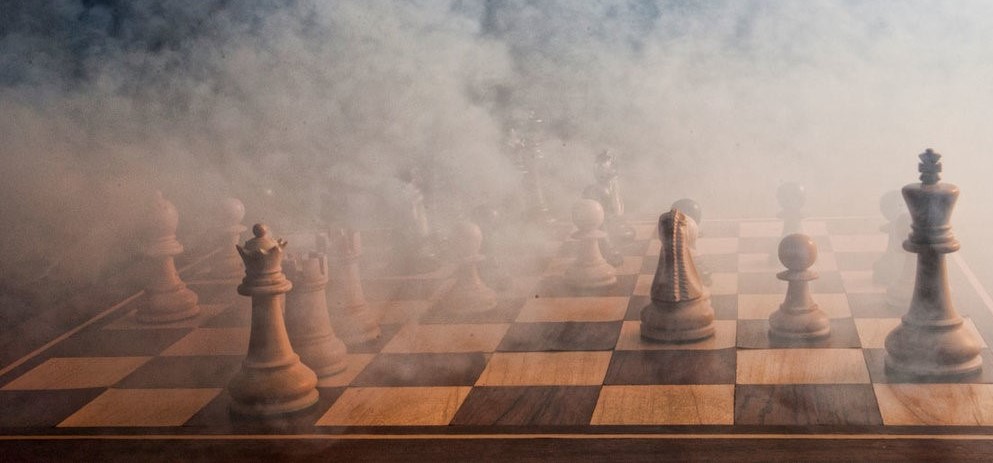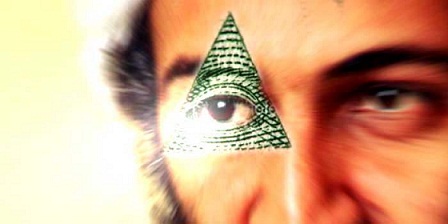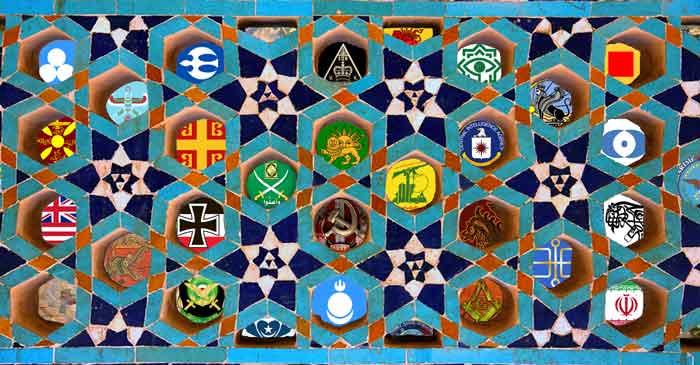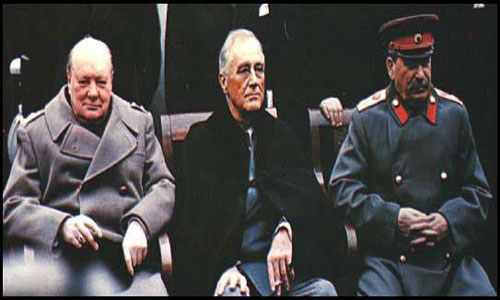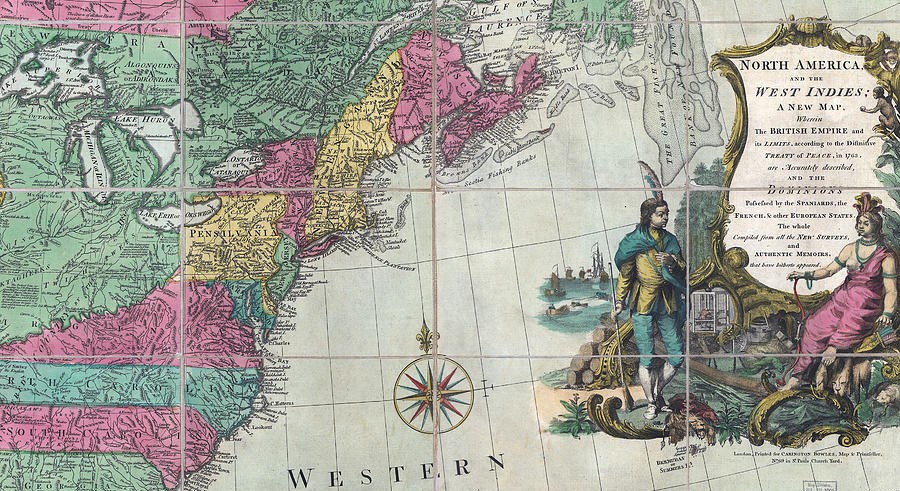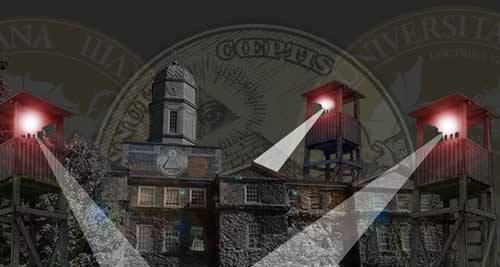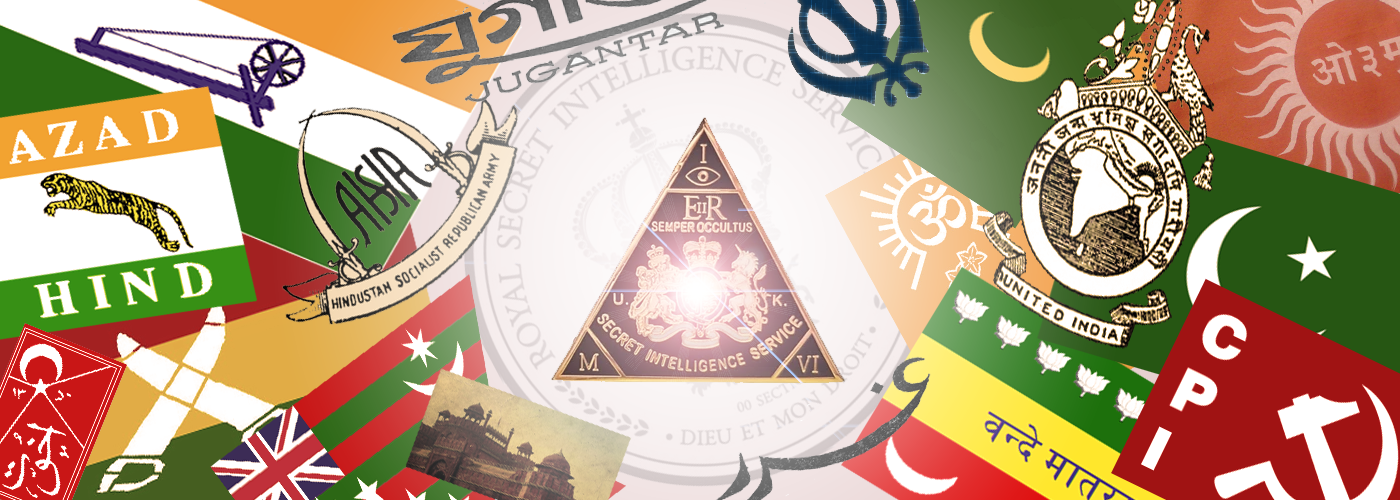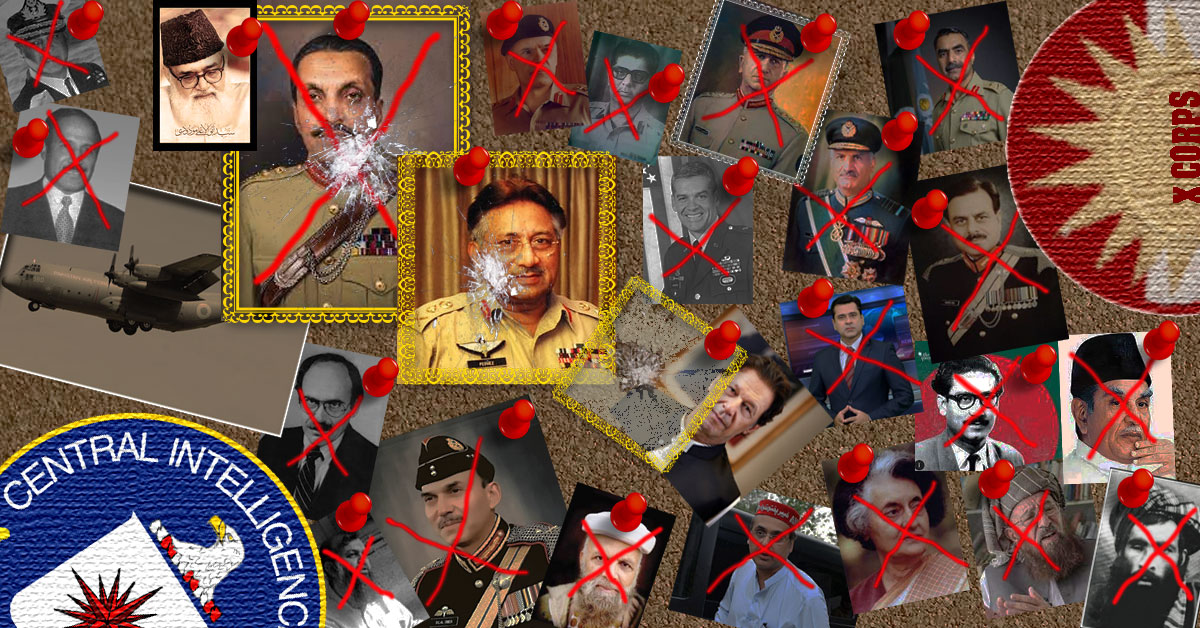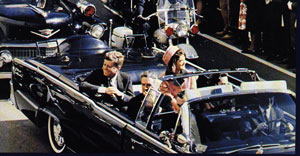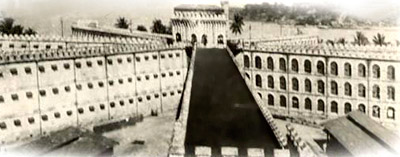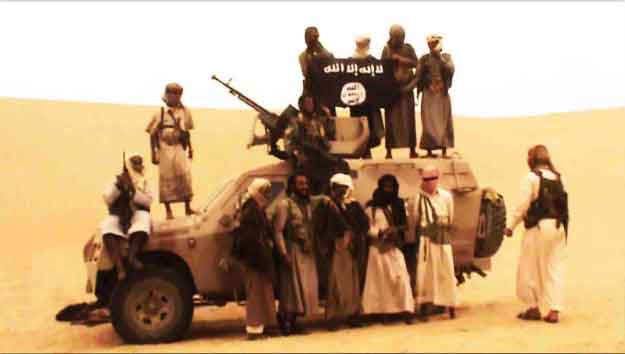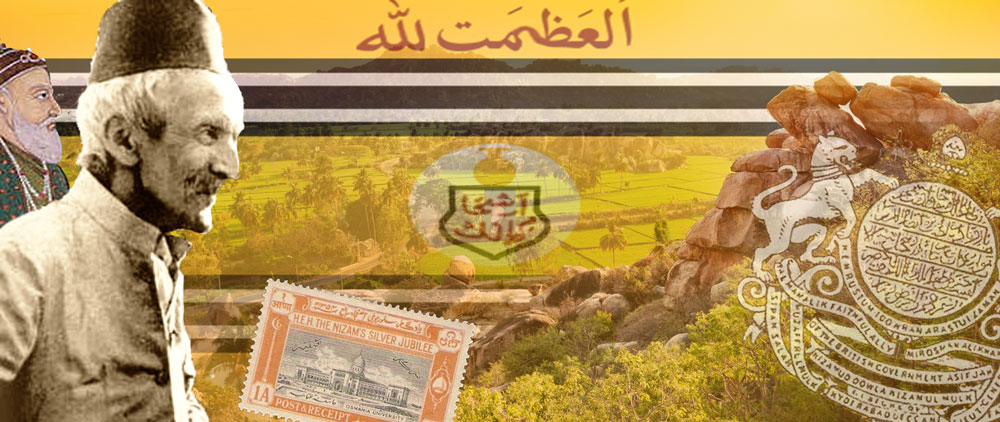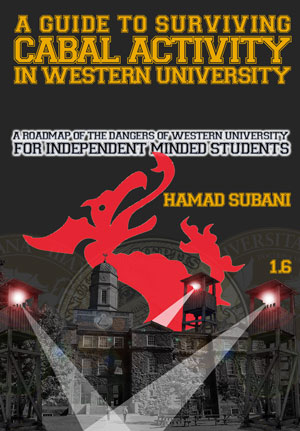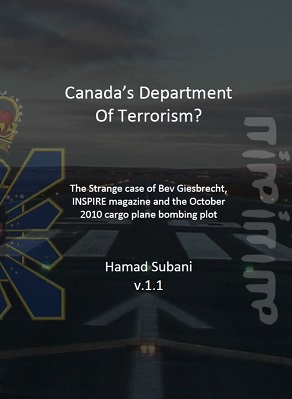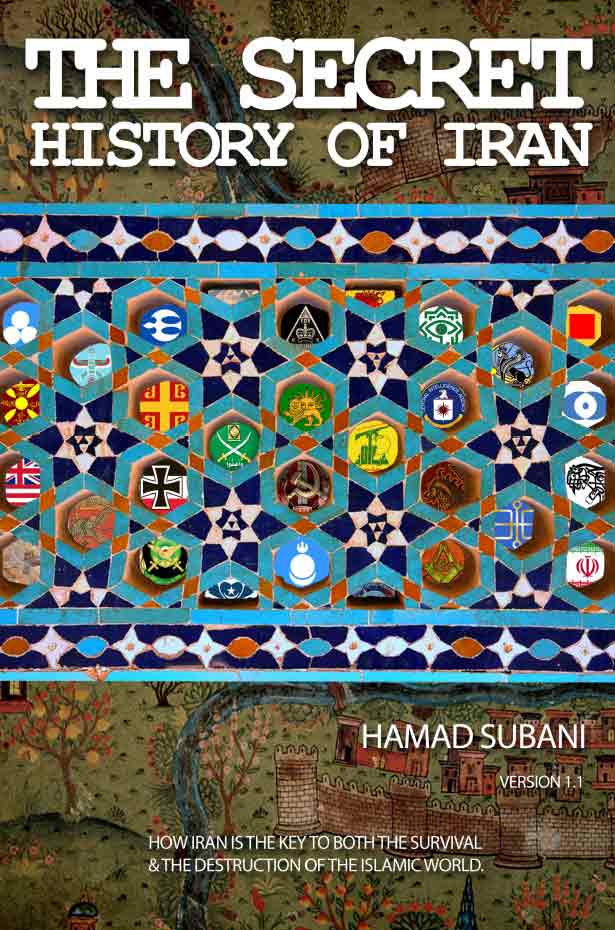The Vultures are Circling India…….Again
Last Updated on June 30, 2019 by Hamad Subani
 Thanks to the efforts of Great Game India, the Rothschild Cabal is now being tagged in almost all of India’s recent notable economic woes. A mere 71 years after independence, India is being recolonized……by the same old families, using the same old tactics. As before, the Illuminati is sneaking in, disguised as companies of businessmen and traders. And once again, Indians are looking up to these foreigners (and their trained brown acolytes) as brainy financial wizards, with the same wonder-struck awe they once looked up to the red coats with.
Thanks to the efforts of Great Game India, the Rothschild Cabal is now being tagged in almost all of India’s recent notable economic woes. A mere 71 years after independence, India is being recolonized……by the same old families, using the same old tactics. As before, the Illuminati is sneaking in, disguised as companies of businessmen and traders. And once again, Indians are looking up to these foreigners (and their trained brown acolytes) as brainy financial wizards, with the same wonder-struck awe they once looked up to the red coats with.
Global financial advisory firm Rothschild Group today said it has appointed former British High Commissioner to India Richard Stagg as Chairman of its India operations with effect from May 1, 2015.
Rothschild Group not being discreet about their ties to the country which colonized IndiaWith a team of about 20 investment bankers, Rothschild and Co. has managed to be part of over 200 deals ranging from one of India’s biggest in the oil and gas sector to automobiles and renewable energy, in 2016 alone.
LiveMint, 27th February 2017Rothschild Global Advisory stands apart from other advisers in India in that senior bankers, based in Mumbai, lead each assignment from start to finish. We bring to our clients a wealth of experience, providing impartial, expert advisory and execution services to large and mid-sized corporations, private equity, families and entrepreneurs and the Indian government. Our global coverage allows clients to leverage our full network, connecting Indian clients with overseas assets, investors and sources of finance. We possess an in-depth understanding of India’s regulatory and market environment. As a family-controlled company we understand how India’s successful family businesses operate and the challenges they face.
Official Website of Rothschild & Co. India, 29th April 2018Like most places which experience a high level of growth, it is always correlated with some level of risk, 7-8% may be more, that needs to be absorbed in (the) right manner. There are some execution risks along the way. The impression I am getting is quite superficial, but there is a slight impression that the health of the economy and the general health of the banking system where non-performing assets (NPAs) are not at a sustainable level. Should consolidation address part of that to improve the banking system? It will be a very good outcome.
Alexandre de Rothschild, deputy head of Rothschild Merchant Banking, on why ALL YUAR NPA's ARE BETTER OFF WITH USVijay Mallya and the 2016 Demonetization Mess….Guess who the real “Kingfisher” turned out to be?

Mallya got “Kingfished” by some bigger fish.
In 2003, Indian dope Whiskey peddler Vijay Mallya started dickering with airlines, creating Kingfisher Airlines, mainly out of loans from public-owned Indian banks, such as the State Bank of India. The advertising punchline for this airline were attractive young girls in skimpy clothing getting you drunk high up in the clouds. In June 2004, a small-time Indian airline named Air Deccan appointed N.M. Rothschild as a financial advisor to divest its equity in exchange for capital. In 2007, Kingfisher Airlines would acquire Air Deccan for a rather unjustifiable price tag, and this would be the beginning of Kingfisher’s woes. It is unclear what role (if any) N. M. Rothschild played in the acquisition. By June 2012, Rothschild India did not sound very sympathetic of Kingfisher Airlines. To quote,
“I am surprised that the airline is still afloat. It needs serious restructuring and cash. They are pinning their survival on FDI but who will put money in a near-bankrupt airline?” financial advisory group Rothschild (India) MD Amitabh Malhotra said. He thinks allowing foreign carriers to pick up stake in Indian airlines is a long-term solution and will broadly improve sentiment, whenever allowed. “But at the moment, there are only a handful of airlines with enough money to invest and I think there is limited appetite for India as of now, given the operating environment,” added Malhotra.
Interestingly, the public-owned Air India would appoint Booz Allen & Company and Rothschild for “debt restructuring” in October 2009. Whatever “debt restructuring” they did didn’t seems to have worked, because just like Air Deccan, Air India too ended up on the chopping block, and is being privatized.

The production of Dope, with its potential for creating disruption, addiction and destruction, occupies a very important place among the Powers That Be. To them, pretending to save Kingfisher Airlines was all about gaining Mallya’s Dope Empire, which they will retain for centuries to come.
By May 2013, a British MNC named Diageo acquired a 10% stake in Mallya’s Whiskey Empire (United Spirits Limited) for US $320 million. Given the losses being made by Kingfisher Airlines, Mallya was more than happy to oblige. By 2014, Diageo had invested more than roughly £1.8bn and their share had gone up to 54.8% in United Spirits. Diageo emerged as a strange benefactor, puffing up the already larger-than-life Mallya, now a member of the Rajya Sabha (identifying with the BJP), who really needed the cash, given his misadventures in Kingfisher Airlines. Nothing unusual, except for the fact that Diageo’s 2012 Annual Report (Form 20-F) to the United States Securities and Exchange Commission mentions one of it’s non-executive directors as Laurence M. Danon. To quote,
Appointed a non-executive director of Diageo plc in January 2006. She is chairman of the executive board of Edmond de Rothschild Corporate Finance and a non-executive director of Groupe BPCE and TF1, both in France. Formerly she served with the French Ministry of Industry and Energy, held a number of senior management posts with Total Fina Elf and was chairman and chief executive officer of France Printemps. She was also a non-executive director of Experian Group Limited, Plastic Omnium SA and Rhodia SA.
Ummm nothing unusual, so lets move on….
When the Paradise Papers later revealed names of Indians diverting money to offshore havens, Mallya topped the list, diverting up to US $1.5 billion! To quote,
Investigations by The Indian Express into the dealings between Mallya and Diageo suggest that the company approached a London-based law firm Linklaters LLP to “undertake a massive restructuring exercise to simplify the complex group structure created by Mallya.” According to the Indian Express, Mallya’s USL Holdings (based in the British Virgin Islands) was allegedly involved with diverting funds amounting to $1.5 billion, along with three other subsidiaries based in the UK.
So whatever was invested from abroad into Mallya’s operations never reached the Indian public banks which had financed Kingfisher Airlines. But what remained was the now the undisputed foreign ownership of a major Indian dope company.
By July 2014, Kingfisher Airlines’ indebtedness appeared as India’s state-owned banks’ top “non-performing asset” after failing to repay loans of over ₹40 billion (US$610 million). The public-owned State Bank of India (SBI) was the largest creditor and leader of a consortium of banks in the DRP (Debt Recast Package) and has an exposure of ₹14,578 million or ₹1457.8 crores (US$220 million). The State Bank of India could have gone after Mallya’s other businesses, especially the capital he and his companies had received from Diageo. But conveniently enough, most of this capital was already in Mallya’s offshore accounts. The Powers That Be understood that Mallya had to be distanced from Diageo’s acquisitions in India. And so, a deal was brokered in February 2016 in which Mallya was given $75 million to step down as chairman of United Spirits Limited, a company his father had founded. To quote,
Amit Tandon, the founder and managing director of Institutional Investor Advisory Services, said Diageo might have felt compelled to act as Mr Mallya had been declared a “wilful defaulter” by Indian banks, which, under Central Bank Rules, could have prevented United Spirits from accessing bank loans as long as he remained the chairman.
$40 million was paid on the date of the Agreement (25th February 2016) and the remainder was to be paid on the subsequent anniversaries of the Agreement. Efforts were made to trace the $40 million last paid to to Mallya. To quote,
The banks submitted that Diageo itself had on February 28 2016 apprised the Debt Recovery Tribunal about the payment on February 25. They submitted that Diageo’s memo before the tribunal traces the payment to an account maintained by Mr. Mallya with Edmond De Rothschild (Suisse) SA in Geneva.
However, the disclosure statement filed by Mr. Mallya of assets in his possession as on March 31 2016 does not reflect this transaction of USD 40 million.
The banks urged that this action of “deliberate” concealment goes against the very letter and spirit of the court’s direction on April 7 to Mr. Mallya to disclose all his assets.
In response, Mallya filed a counter-affidavit claiming the money had been transferred to his direct family, who are not Indian citizens or Indian residents. As proof, he enclosed a letter from his banker Edmond De Rothschild, which is addressed to the Supreme Court of India. In an unpublicized journalistic coup, Great Game India obtained and published this letter in December 2016. Moral of the story: If you are looting money from the citizenry of India, having the Rothschilds as your banker ensures that you are covered. Even 1.3 billion Indians will not be able to pry it out of there. Or as Great Game India put it,
How a letter from the Bank of Rothschild can make $40 million of Indian taxpayers money vanish?
By March 2016, Mallya had left India. Mysteriously, there were no attempts to stop him at the airport.
A British limited liability partnership called Ladywalk LLP, consisting of two members, including a company called Continental Administration Services (registered in St. Kitts and Nevis) acquired a £11.5 million mansion in London named Ladywalk. Another Company named Ladywalk Investments (incorporated in the British Virgin Islands) was the borrower for the purchase. Ladywalk Investments obtained a loan to finance the property purchase in July 2015 from the Edmond de Rothschild private bank in Switzerland. Since April 2016, this is the current residence of Vijay Mallya!

This £11.5 million mansion in London is the current home of Vijay Mallya. The a loan to finance the property purchase came from the Edmond de Rothschild private bank in Switzerland.
On 16th November 2016, it was sheepishly announced that the State Bank of India was writing off ₹1200 crores of Kingfisher Airlines’ ₹1457.8 crore debt.
How could the State Bank of India maintain its liquidity by doing Mallya such a personal favor? On 9th November 2016, the Modi-led BJP Government had announced the “demonetization” of large denomination banknotes, resulting in Indians rushing to banks to deposit their large banknotes, before a deadline made them illegal and worthless. The sudden inflow of money into banks such as the State Bank of India ensured their liquidity, enabling the State Bank of India to write off loans worth ₹7,016 crores (Mallya taking ₹1200 crores of this write-off). But at the cost of grinding the economy to a halt by creating a cash crunch unprecedented in Indian history, and making depositors stand in lines for their everyday cash needs. The Powers That Be decided to spin these thralls of misery and woe into an opportunity to push for a Globalist cashless society, in which smartphones, smartphone apps and smartphone networks (such as Reliance Jio) figured prominently. In an earlier article, I postulated that the minds at work during India’s recent Demonetization mess were most likely based in places like London and New York. Now we see the picture.
This raises the larger question….was the Demonetization exercise for the Mallyas of India? Or are the most cold and calculating Illuminati banking houses, direct descendants of the East India Company, staging a comeback by taking over Indian businesses and Institutions through “Foreign Direct Investment,” while ensuring that their “investment” is repatriated back to London through the likes of Mallya?
When future historians dissect what took place in 2016, they will notice an uncanny resemblance with the methodology of the East India Company in the 19th Century, which preyed on the follies of native rulers and princes, by advancing them loans and taking over their kingdoms when they could not pay. Was Vijay Mallya one such bumbling “prince,” who got ensnared into entering the airline business, and ended up being duped of his lucrative dope trade, which was the primary target of The Powers That Be all along? Remember that the Illuminati have a natural affinity to the evergreen industry of drugs and intoxicants in all their forms. Even if that is the case, it is clear that Mallya did not fight back. Rather, he sold his soul for all that it was worth, to the biggest historical enemies of the people of the Subcontinent.

Vijay Mallya making an occult symbol with his fingers. Is he a dupe turned accomplice, rather than just a plain dupe?
There is also another major difference when compared to the 19th century. The Mughals, despite their burning desire, could not take on the British and expel them from their ports because the Illuminati had co-opted other groups such as the Marathas into violent and atrocious wars against them. Their actual authority extended merely to the environs of Delhi, and their only option to counter the British was a suicidal participation in the events of 1857. Present day India is supposed to be a well-armed, sovereign country. But if that is the case, why haven’t they imposed a moratorium on Rothschild activities in India?
The saga is far from over. Imagine the years ahead, when hijacked companies, like United Spirits Limited, start taking huge loans from Indian public banks……a swarm of “Kingfishers” is about to be unleashed on India.
The 2007 2G Spectrum Scam and the rise of the Orwellian Reliance Jio

Why were the Rothschild’s tasked with auctioning India’s Wireless Spectrum?
The Rothschilds have been involved with auctioning the Wireless Spectrum to Mobile Network Providers in Western countries where they hold dominance. For organizing and managing the auctions, they charge governments. But again, they wouldn’t be involved unless there were opportunities to make dizzying piles of money in a sector where newly emerging technology, business forecasts and future value create large grey areas. A group like the Rothschilds is also likely to be investors, direct and indirect, in the Mobile Network Providers bidding for Spectrum rights. And therefore there is tremendous opportunity to dip your fingers everywhere. To quote a 2016 article,
Rothschild has been one of the few pure global advisory franchisees to be successful in India. The firm has been a part of many marquee transactions in India and has created a niche for itself without the backing of a balance sheet that some of it peers have. Recently the bank won the mandate to advise India’s second largest mobile telephony company Vodafone India’s public offer including selecting investment bankers.
Why on earth would the Indian Government let the fox into the hen-house by inviting N.M. Rothschild to organize and facilitate the bidding of the 2G Spectrum in 2007 remains a mystery, given the fact that a committee of bureaucrats with the appropriate authority could have achieved far more stellar results. In 2008, the Rothschilds were also selected to organize the auction of the 3G Spectrum and the Broadband Spectrum. To quote on how the Rothschild auction process was to work for the 3G spectrum,
The Department of Telecommunications (DoT) will be auctioning three blocks of 3G spectrum in most of the 22 telecom circles, except for Punjab, West Bengal, Himachal Pradesh, Bihar, and Jammu and Kashmir where four slots will be offered for sale.
In first-of-its-kind e-auction mechanism in the world designed by NM Rothschild, the price of spectrum will escalate gradually after every round depending upon the demand and number of blocks available in each circle. The price will be increased by a maximum of up to 10 per cent of the reserve price in each circle in a round depending upon the demand. The three price escalations would be 10, five or one per cent given the number of operators vying for spectrum in a particular area. NM Rothschild will simultaneously hold auction in all the 22 circles and any operator will be allowed to re-enter the bidding round in any circle even after quitting in the earlier rounds.
Meanwhile, the DoT on Monday held mock auction for 3G spectrum and BWA services where all the 15 applicant companies participated. The mock auction went off smoothly with all companies expressing satisfaction over the entire process, including the software platform and auction rules.
For this mediocre exercise, the Rothschilds were officially awarded a fat ₹30.5 crore commission (while the Government of India reportedly earned ₹67,700 crores. The Government again awarded the Rothschilds the 3G auction for 2013. There are many who believe that the 3G auctions are also rigged, allowing bidders to collude with each other and later use roaming services to unethically share their licenses with each other.
On the other hand, the Rothschild auction of the 2G Spectrum in 2007 resulted in one of the biggest corruption scandals in Indian history, and probably impacted the success of the Congress Party in the next election. While all 122 2G Spectrum licenses issued by the Rothschilds were cancelled in 2012, bidders accused of irregularities were acquitted. And of course, no fingers were pointed at the Rothschilds. No one in the Indian media dared. The controversial Telecom Minister came out to the defend the Rothschilds. The Rothschilds claimed to have awarded the licenses on a First-come-first-serve basis, although the demand-drafts of the applicants were backdated. A fresh auction would take place in 2014.
To cut it short, it was estimated that the 122 2G Spectrum licenses were awarded for a paltry sum of ₹9200 crores, bringing a loss of ₹176,000 crores (US$27 billion) to the Indian Government. Maybe the Rothschilds were testing the waters, and had assumed that India was on par with other banana republics. But they were wrong, and narrowly missed being exposed. It seems that the bidders, including Reliance, Tata and Unitech (a Delhi real-estate Company) were in on the scam. And they quickly resold their licenses to foreign companies, Etisalat, Docomo and Uninor respectively, at much higher prices. Under Indian telecom rules, a phone firm holding a telecom license in one licensed area is not allowed to own more than 9.9% of another phone firm operating in the same area. Reliance already had 20-year licenses for several areas. Yet, a company closely linked to them named Swan Telecom managed to obtain licenses in 13 areas. To quote, “CBI has said that Swan Telecom, immediately after receiving the licences for ₹1,537 crore, sold 45% of its stake to the UAE’s Etisalat DB for nearly ₹4,200 crore.”

The sudden emergence of Reliance JIO, a new 4G Mobile Phone-Internet Service, and its insistence on demanding a creepy Government-issued biometric card has raised many eyebrows.
The first 4G Spectrum auction was conducted in May 2010 and Reliance Jio got the licence to launch the 4G service in all 22 circles of India, in effect getting a pan-India license. Only the publicly owned BSNL is eligible for a pan-India license. Reliance Jio cashed on on the Demonetization to offer mobile banking alternatives to cash. They also promoted the creepy, dystopian Aadhar card (which is based on the Chinese National ID card), as a prerequisite for obtaining their mobile data services. The lengths to which they went to integrate their services with the Aadhar card raised a lot of eyebrows.
A former director at N.M. Rothschild now shares a desk next to Mukesh Ambani at Reliance Jio’s headquarters in Mumbai. Thanks to Great Game India for first exploring these connections.

The Panna-Mukta oilfield may be very important to India’s future.
Rothschild Involvement in the Panna-Mukta Oilfield
The Panna-Mukta Oilfield off the coast of Mumbai was first discovered by the Indian state-owned Oil and Natural Gas Corporation (ONGC). How on earth Reliance Industries and the Rothschild dominated Enron got a 25-year lease to the oilfield in 1994 remains a major controversy. To quote Wikipedia:
The contract was awarded during the tenure of Satish Sharma as petroleum minister. The Comptroller and Auditor General of India wrote a report that was highly critical of the contract award process. In December 1995 Y.P. Singh, a Superintendent of Police, investigated allegations on nepotism and submitted a detailed report.[8] The Central Bureau of Investigation (CBI) registered a preliminary inquiry in June 1996. By August 1997 the CBI had yet to issue a report on the affair. An article in Outlook India that month reported that serious evidence of bribe-giving by companies looking for oil exploitation contracts had been submitted, but claimed that CBI was attempting a cover-up.[8]
The Centre for Public Interest Litigation (CPIL) filed a petition for a judicial probe of the deal. In October 1997 the Delhi High Court heard the CPIL petition and issued notices to the involved companies and government organizations. The petition alleged that V P Singh’s notes had been lost. Prashant Bhushan, advocate for CPIL, said: “If files are going to disappear like this, no investigation into criminal cases can be carried out”. In May 1998 the CBI admitted that Y.P. Singh’s case diary had indeed been lost and might have been deliberately destroyed. In response to a further CPIL petition the Supreme Court of India conducted a hearing into the affair, which concluded in August 2000.
In September 2010 the Comptroller and Auditor General of India found that the consortium running the fields had made excessive payments to service contractors, which could have cut into the profits that the government made from the fields.
Since then, Enron’s stake has been taken by Shell, which is more directly associated with the Rothschilds. It is important to note that Shell is the operator of the oil fields. If the government oversight were to weaken, they could pump out double the output, without anyone noticing. A natural resource like the Panna-Mukta Oilfield can be game-changer for the country’s economy. But by “leasing” it out to third parties instead of selling its output, Indian administrators make the naive and illiterate Arab Bedouin rulers of the 1940s appear like strategists. These rather simple-minded people generally avoided such dangerous commitments and ensured that they exercised priority over their resources.
Lately, this arrangement has come into controversy after it was learnt that Reliance and the Rothschilds were not correctly sharing profits with the Government. The Singapore-based arbitrator of the case has also been noted of having a potential conflict of interest.
Rothschild Advisors in the Tata Group

Protectionist tariffs allowed the Tata Group to unload many questionable products onto the Indian consumer. Yet, their efforts were lauded as patriotic.
My personal opinion of the Tata Group is an organization just as corrupt as any other Indian corporation, but one which manages to laud itself for its history, its achievements and its success, whereas it hardly ever faced any justified competition.
In 2013, CEO Cyrus Mistry appointed Ajit Krishnakumar to head the mergers & acquisitions team. He is described as an investment banker at Rothschilds. On 14th October 2016, Tata power appointed Sanjay Bhandarkar as one of three independent directors. Here’s what we know of him:
After building NM Rothschild’s India business for almost two decades, Sanjay Bhandarkar, the face of the London headquartered investment bank in the country is moving to a consulting role with the firm. Bhandarkar is credited with building the Rothschild franchise in India in the 18 years he has been with the firm, advising marque transactions including the auctioning of spectrum to mobile telephony companies in the mid 1990s. The 47-year-old is still far away from the age when I-bankers hang up their boots. He will continue to be with Rothschild in the capacity of a senior advisor till the deals he is associated with are completed, one of the persons said.
Finally, in the absence of any revelation of malfeasance or dubious conduct on the part of Cyrus Mistry, one needs to ask the Tata Sons board about its own double standards. Why was the Board silent about the less than pristine behaviour of Mr Ratan Tata personally and key Tata officials in the 2G scam? Why did the taped conversation of the Tata’s New Delhi lobbyist Niira Radia, or Mr Tata’s letter to Tamil Nadu’s former Chief Minister M Karunanidhi not outrage the Tata Sons Board enough to want a change? It smacks of double standards. The tapes showed that Mr Tata, who earlier in 2010 had warned that India would turn into a banana republic if corruption were not contained, was also a beneficiary of A Raja’s corrupt dealings.


